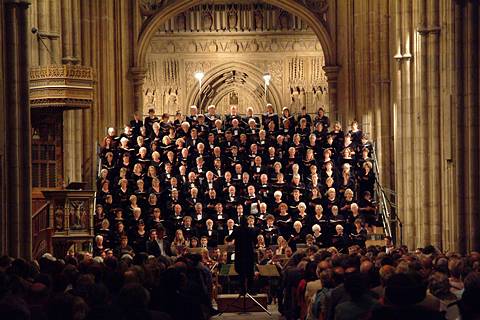|
<< -- 4 -- Rosie and Nick Evelegh A THRILLING PERFORMANCE

St John (the forthright tenor Andrew Staples) preferred to serve up a rather more dramatic, even operatic, sound; he too, thanks to lucid diction, succeeded in soaring over the full-blooded Philharmonia players. It was not always easy to hear Colin Campbell clearly: 'The Betrayal' could have been slightly more convincing.
Sadly, the fine bass-baritone Michael Pearce, a distinguished former choral scholar of St John's College, Cambridge, was indisposed and unable to sing Judas. Instead, the role was taken by the splendid baritone Robert Rice. For someone stepping in at the very last minute (4.30pm on the afternoon of the concert!), this was a terrific performance. The deep role of Judas, as surely as the sounding of the Shofar, or Jewish horn, supplies a focal point of The Apostles. Although he was occasionally overpowered, the gloom of the betrayer's self-castigating soliloquy before he heads off to hang himself was simply stupendous.

Canterbury Choral Society
|
You feel that there's a curious kind of self-identification by Elgar himself which shines through this music; and indeed, some of it was conceived in a distinctly marshy, glowering and gloomy part of outlying South Worcestershire. The Judas section goes on for some considerable time, and one is reminded how Jerrold Northrop Moore has pointed out that The Apostles 'has some marvellous moments and inspired quarter-hours'. Here, surely, was one of them.
|

